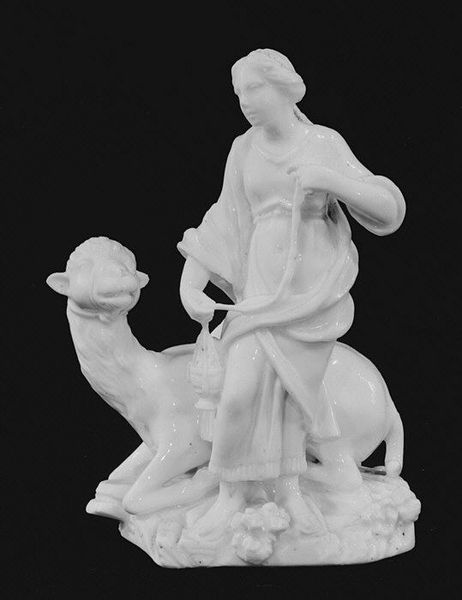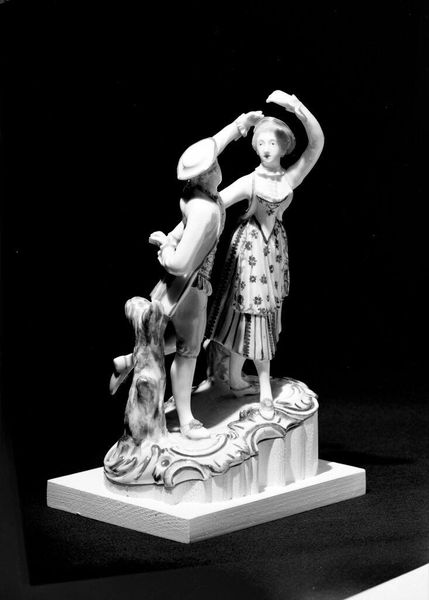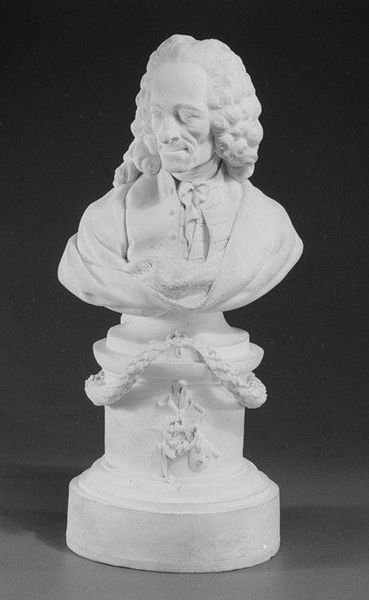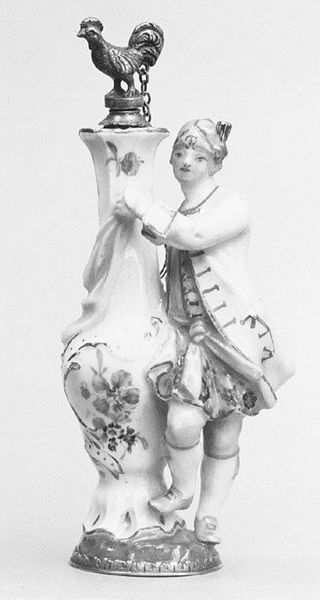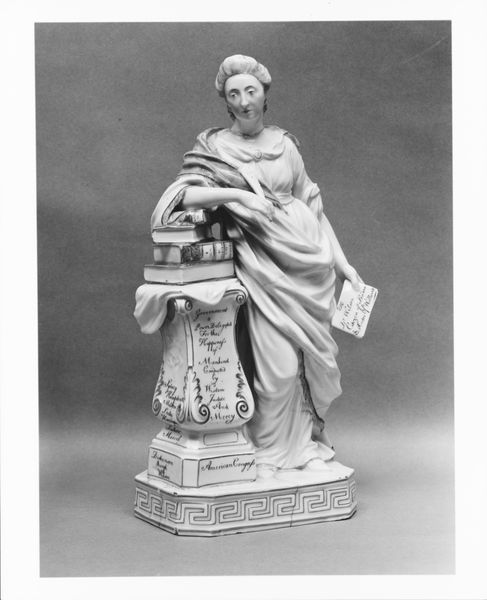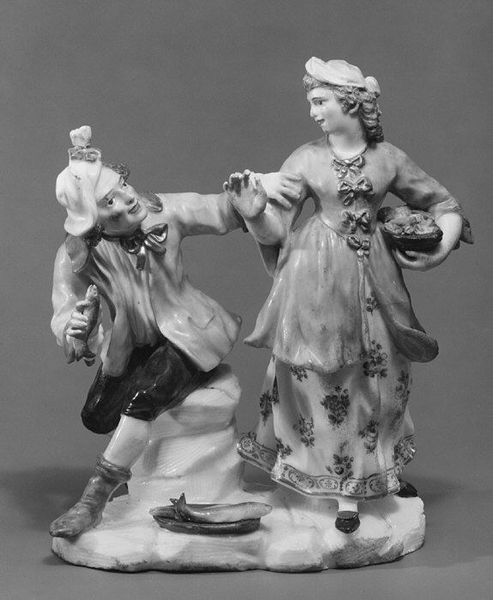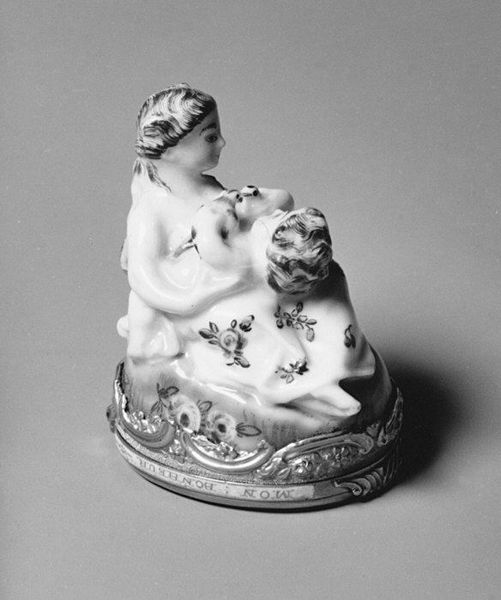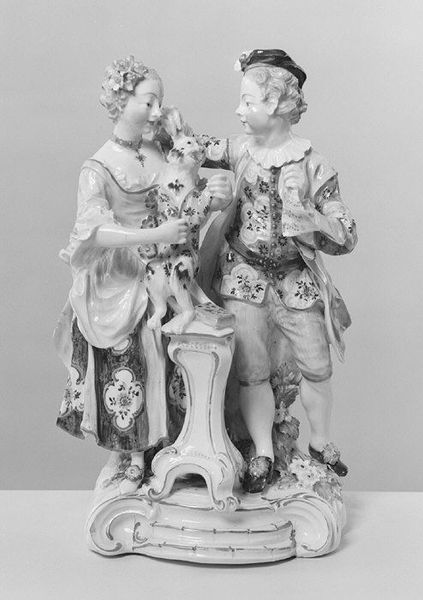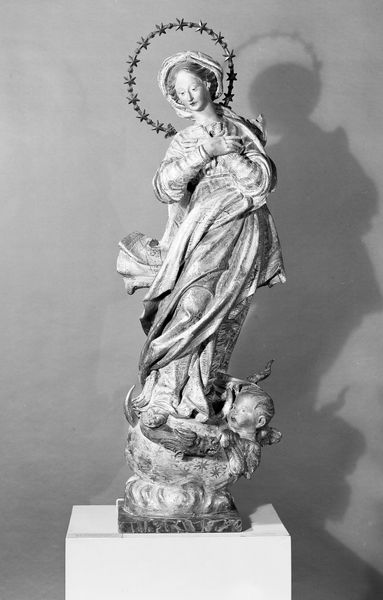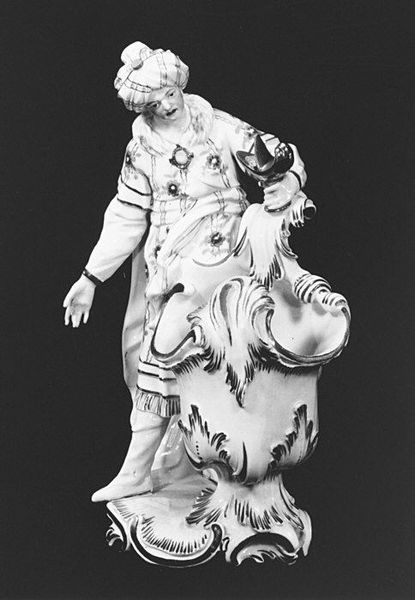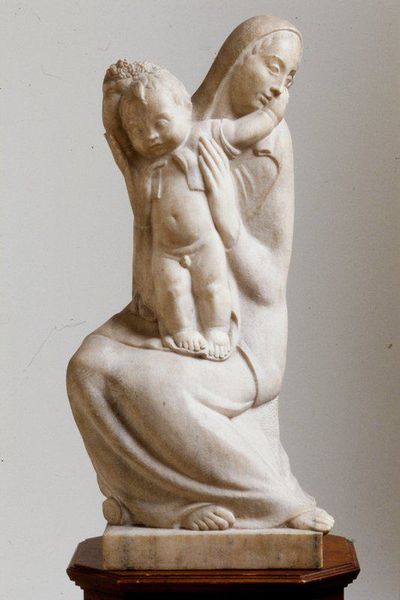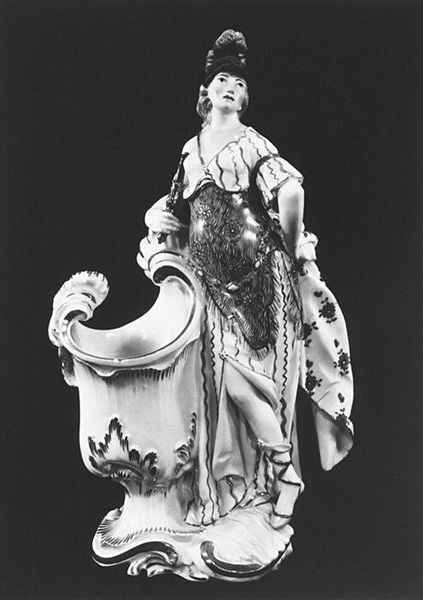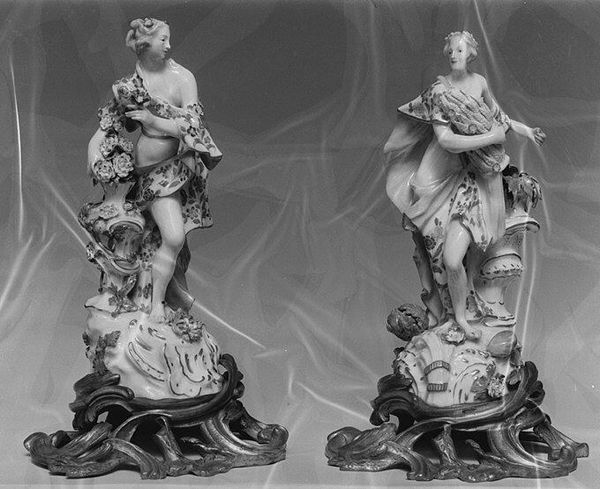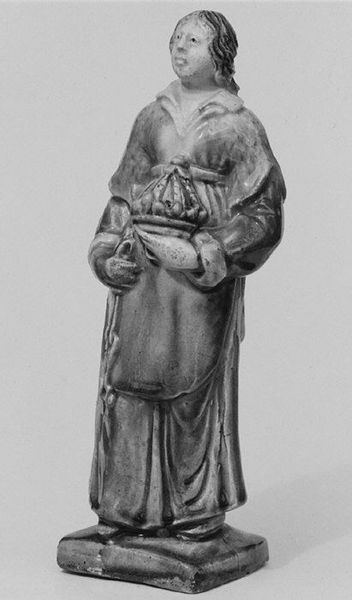
ceramic, porcelain, sculpture
#
portrait
#
sculpture
#
ceramic
#
porcelain
#
figuration
#
sculpture
#
genre-painting
#
decorative-art
#
rococo
Dimensions: Height: 4 1/2 in. (11.4 cm)
Copyright: Public Domain
Editor: This delightful porcelain sculpture, entitled "Gardener," was crafted by Niderviller sometime between 1763 and 1770. The piece feels almost delicate, but the details are striking. What draws your eye when you look at it? Curator: It's a charming object, isn't it? Immediately, I’m drawn to the tension between the supposed elevated status of porcelain as a material and the quotidian subject matter. How does this figurine engage with the larger economic and social contexts of 18th-century production and consumption? Think about the labor involved in producing porcelain – was it skilled or unskilled? Where would the raw materials have been sourced? Editor: That's a great point. I hadn't really thought about the sheer labor behind it. The gardener figure almost romanticizes labor, obscuring the reality of porcelain production. Do you think that’s intentional? Curator: Precisely! The Rococo style often celebrated the pastoral and the 'natural', while simultaneously relying on incredibly complex systems of production. How does the act of creating this figure, from extracting raw materials to the final firing, mirror the agricultural labor it seemingly portrays? We might also think about who could afford such a piece and what role it played in their lives. Was it purely decorative, or did it serve a social function, displaying wealth and status? Editor: It's fascinating to consider how much is embedded in the object itself – a history of labor and consumption. Thank you for shedding light on those aspects! Curator: My pleasure. It reminds us to consider art not just as an aesthetic experience, but as a product deeply enmeshed in its material conditions.
Comments
No comments
Be the first to comment and join the conversation on the ultimate creative platform.
